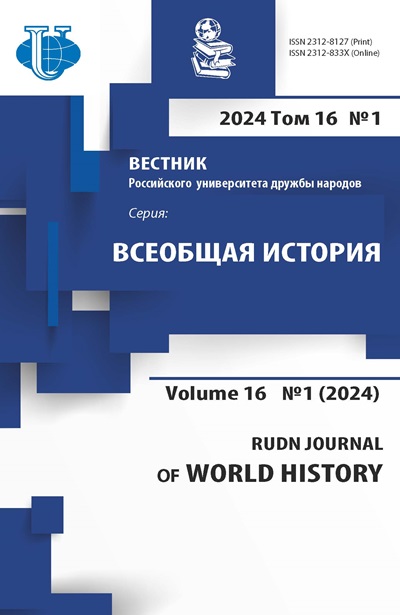DUALISM OF CHINA’S CONTEMPORARY FOREIGN POLICY TOWARDS SOUTHEAST ASIA
- Authors: Leksyutina Y.V.1
-
Affiliations:
- Saint-Petersburg State University
- Issue: No 4 (2015)
- Pages: 35-45
- Section: Articles
- URL: https://journals.rudn.ru/world-history/article/view/1102
Cite item
Full Text
Abstract
The article examines the ambiguity of China’s contemporary foreign policy towards Southeast Asia that is manifested in the incorporation of two contradicting approaches simultaneously: economic and diplomatic engagement with Southeast Asian countries, but growing pressure on them in territorial disputes. It analyzes efforts that Beijing has been undertaking to enhance its political engagement, trade and investments in Southeast Asia and to boost China’s positive image in the region. It also traces China’s growing assertiveness in the territorial disputes in the South China Sea since 2007-2008. The article identifies major reasons for changes in China’s foreign policy on territorial issues - the strengthening of China’s national comprehensive power, the rise of Chinese nationalism and the US “return to Asia” policy. It concludes that Chinese growing engagement with Southeast Asian countries is aimed at deepening of these countries’ dependence on China in order to exert pressure on them on territorial issues in future.
About the authors
Ya Valer'evna Leksyutina
Saint-Petersburg State University
Email: lexyana@yandex.ru
School of International Relations
References













